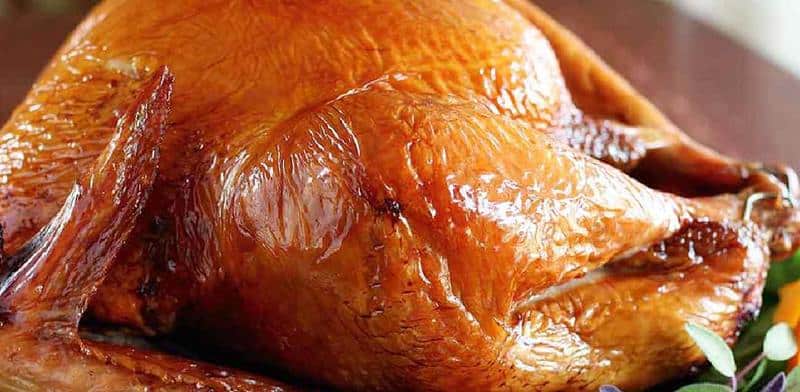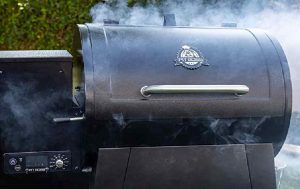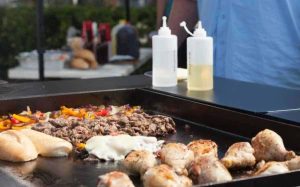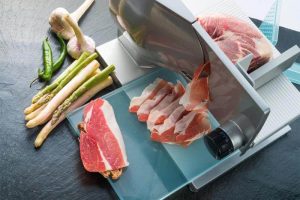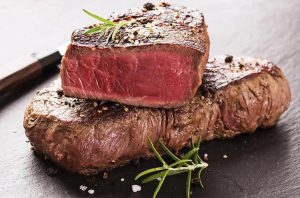Cooking the perfect turkey can be a bit of a challenge, especially when it comes to determining when it’s done or dealing with unexpected delays in the cooking process.
But worry not! In this guide, we’ll discuss the foolproof way to check your turkey’s doneness and explore various tips and techniques to speed up the cooking process.
- Turkey Taking Longer Than Expected
- How Long Does it Take to Cook a Turkey?
- Recommended Internal Temperature For Turkey
- How to Determine When Your Turkey is Done
- Turkey Cooking Delays: What Could Be the Cause?
- Speeding Up Your Turkey Cooking Process: Tips and Techniques
Turkey Taking Longer Than Expected
Cooking a turkey can be a challenging task, especially when it takes longer than anticipated to reach the desired doneness.
There could be several factors at play, such as the turkey not being completely thawed, the smoker’s temperature fluctuating, or incorrect temperature settings.
How Long Does it Take to Cook a Turkey?
When smoking a turkey, the cooking time depends on the temperature you set.
At 325℉, it usually takes around 15 minutes per pound, while at a lower temperature range of 275℉ to 300℉, it might take 20-25 minutes per pound.
Keep in mind that stuffing, size, and thawing status can all affect cooking time. Larger birds might need adjustments to avoid drying out.
Recommended Internal Temperature For Turkey
To ensure a perfectly cooked turkey, the recommended internal temperature is 165℉.
However, it’s wise to remove the turkey from the heat when it reaches 160℉, as it will continue cooking during the resting phase.
Let the turkey rest for 20 minutes to an hour, depending on its size.
If the white and dark meat reaches their respective target temperatures simultaneously, let the turkey rest before carving.
However, if the breast finishes cooking before the legs and thighs, carve off the breast meat, tent it with foil, and return the rest of the turkey to the smoker or oven.
How to Determine When Your Turkey is Done
Determining when a turkey is perfectly cooked can be a challenge, but using a reliable meat thermometer is the key to success.
As cooking times can vary depending on the turkey’s size and the smoker or oven used, a thermometer provides more accurate information than relying solely on estimated cooking times.
To check your turkey’s doneness, insert the thermometer into the thickest part of the breast.
After getting a readout, test the area where the drumstick connects to the rest of the bird. If you’re smoking a whole turkey, it’s crucial to examine the temperature of the darker meat areas, such as the thighs.
Be cautious not to touch any bone while measuring the temperature, as bones have different thermal properties than meat, which can lead to inaccurate readings.
Relying on a thermometer that has touched the bone may leave you uncertain about whether your turkey is cooked thoroughly.
Using a quality meat thermometer and carefully checking the temperature in different areas of the turkey will ensure that you serve a perfectly cooked bird, satisfying both your taste buds and safety concerns.
Turkey Cooking Delays: What Could Be the Cause?
When cooking a turkey, you might find it taking longer than expected to reach the desired doneness.
Several factors can contribute to this delay, and understanding them can help you better plan your cooking process.
Here are three possible causes for a turkey taking longer than anticipated to cook:
Erratic Cooking Temperature:
Consistent cooking temperature is crucial for evenly cooked turkey. Issues with maintaining temperature often occur when using grills, smokers, or even indoor ovens.
Cold and windy outdoor conditions can also affect the cooking process.
To mitigate this, consider investing in a grill or smoker cover, placing the unit in a sheltered area, and keeping an eye on the temperature.
If your indoor oven is running too cold, it might have a faulty heating element, thermostat, or sensor – consult a professional for repairs or replacement.
Frozen or Partially Frozen Turkey:
If you start cooking a frozen or partially frozen turkey, it will take longer to reach the target temperature.
A fully frozen turkey may take up to 50% longer to cook, while a partially frozen one will require about 25% more cooking time.
This is because the turkey must first reach room temperature before it can properly cook. To avoid this issue, ensure your turkey is completely thawed before cooking.
Temperature Fluctuations Due to Outdoor Conditions:
Cooking outdoors using a smoker or grill can be affected by external temperatures, especially during colder weather.
The construction and insulation of the smoker or grill can impact its ability to hold consistent temperatures.
If the smoker isn’t well-sealed, it may struggle to maintain the set temperature, resulting in a longer cooking time. To prevent this, choose a smoker or grill with good insulation and sealing.
Speeding Up Your Turkey Cooking Process: Tips and Techniques
1. Increase the cooking temperature:
While it’s essential to be cautious not to burn the skin or dry out the meat, slightly raising the cooking temperature can help.
For smoked turkey, try increasing the temperature to 300 or 325 degrees. For roasted turkey, don’t exceed the 375-degree mark.
2. Carve off the breast meat:
If you don’t mind serving a pre-carved turkey, consider removing the breast meat from the bird.
This allows the breast to finish cooking at a specific temperature while you can increase the heat for the rest of the turkey.
3. Divide the turkey:
Cutting the turkey into parts can help it cook faster. Legs and thighs will cook more quickly once the breast meat is removed, and dividing the carcass even further can speed things up.
4. Spatchcock the turkey:
Although this technique should be applied at the beginning of the cooking process, it’s worth considering for future turkey endeavors.
Spatchcocking, or butterflying, involves removing the turkey’s backbone so that it lies flat. This method can reduce cooking time by up to 50%.
Just remember to use poultry shears and be careful while removing the backbone.
Related >> How to Cook Sirloin Steak (3 Best Ways Explained)
Related >> Smoking Wood Flavor Guide (Best Smoking Wood)
Final Thoughts
By using a meat thermometer to check for doneness and implementing our tips to speed up the cooking process, you’ll be well-equipped to serve a mouthwatering meal.
Remember, practice makes perfect, and with time, you’ll become a turkey-cooking expert. So go ahead, don your apron, and let your culinary skills shine this holiday season!
>> Visit our extensive BBQ guides page for more articles that are similar to this one.
Greetings! I’m Chad, a 43-year-old barbecue aficionado hailing from the beautiful state of Texas. I’m thrilled to invite you on a culinary journey as we explore the art of grilling and smoking together. Through this blog, I aim to ignite your passion for barbecue by offering:
Scrumptious, time-honored BBQ recipes passed down through generations, guaranteed to tantalize your taste buds.
Expert guidance on mastering the grill, smoker, and diverse cooking techniques to elevate your barbecue game.
Recommendations on choosing the perfect tools and equipment tailored to your grilling requirements.
An inside look at the latest trends, innovations, and advancements in the ever-evolving world of barbecue.

